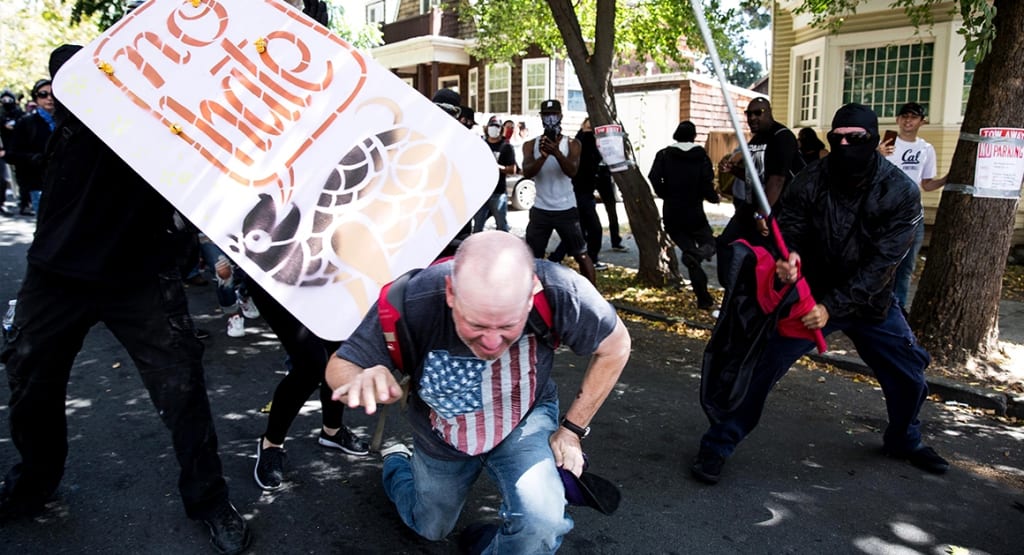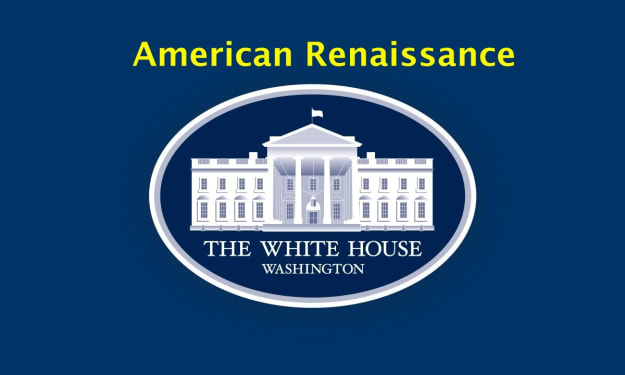
As 2017 comes to an end, the country still finds itself in the grips of political polarization, perhaps more so than under President Barack Obama. However, is this truly caused by politics, or is it cultural in nature? I tend to believe it is the latter and not the former. Allow me to explain...
Comparisons of today to the ideological differences leading up to the Civil War are uncanny. The rhetoric was highly visceral for several years prior to the start of the war. The founding fathers realized a confrontation over slavery was inevitable even when the Declaration of Independence was signed. Wrangling over the issue went on for years, until the South finally broke away from the Union. This conflict was ultimately cultural in nature; whereas the North saw slavery along the lines of the immortal declaration, "All men are created equal," the South perceived it as an issue pertaining to property. The two perspectives were simply incompatible and could not be peacefully resolved.
Today, we suffer from two distinctly different interpretations of America, a liberal or "progressive" perspective touted by the Democrats, and a more conservative version as expressed by the Republicans. So how did we find our way here, and is President Donald Trump truly to blame?
Prior to Trump, the Democrats held both the Congress and the Presidency. During this time, they pressed a social agenda highlighted by the iconic Obamacare which was implemented without any thought of Republican input. Had health care been implemented properly, such as through the development of a feasibility study, both sides would have supplied input and we might have had something we all would have been proud of. Of course, this never happened as the administration jammed it through Congress, thereby creating a split between legislators and the executive branch. More importantly, this split ultimately cost Democrats control over both chambers of the Congress.
The president, unable to overcome differences with the Republicans, implemented a series of executive orders aimed at forging a new social doctrine. These were only temporary as a succeeding president could easily undo them, as Mr. Trump has demonstrated.
So many liberal programs were enacted by Mr. Obama, the thinking and morality of the country began to change. To demonstrate, this past May, the Gallup organization reported on the changes in attitudes in their annual report on morality stating, "Americans continue to express an increasingly liberal outlook on what is morally acceptable, as their views on 10 of 19 moral issues that Gallup measures are the most left-leaning or permissive they have been to date." This is significant as it demonstrates the country's conflicting values.
This change in the American personality, along with a lethargic economy, did not sit well with middle class Americans, nor did the perception the Capitol is being run by professional politicians and the press. Consequently, Donald Trump was swept into office in 2016, much to the surprise of Democrats and the media. From this perspective, just as Jimmy Carter begat Ronald Reagan as president in 1980, Barack Obama begat Donald Trump.
The fact an outsider such as Mr. Trump was elected president, someone perceived as the political opposite of an insider like Hillary Clinton, was unbearable to the Democratic psyche. Consequently, the Democrats portrayed him as evil and incompetent, and pledged to "resist" the new President. Whereas most presidents are afforded a grace period at the start of their term, this was not the case with Mr. Trump. The Democrats held up approval of cabinet and judicial appointments, fought passage of tax reform and repeal of Obamacare, and tried to embarrass the president at every opportunity, even going so far as to call for his impeachment and describing him as "mentally unfit." They implemented a full-court press whereby if he said "black," they would say "white" and vice versa. Recognizing this, the Republicans excluded the Democrats from major legislation, just as the Democrats did to the Republicans during the passage of Obamacare. This action should not be construed as justifiable, as much as it demonstrates the intense distrust between the two sides.
In the private sector, liberals became organized and launched several marches and protests in defiance of Mr. Trump, many suggesting violence, as was evidenced by the rise of Antifa, a group of self-proclaimed anarchists and communists. During this time, free-speech under the 1st Amendment came under fire, with the left trying to squelch a person's right for discussing opposing views, particularly on college campuses.
The news media appears to have embraced the dogma of the left and attacks Mr. Trump unmercifully, right or wrong, over the slightest action or decision. Their message is clear, "The president is wrong," a theme trumpeted over-and-over again on a daily basis. Not surprising, he is not afforded credit for anything positive he has done.
On the other hand, Donald Trump appears to be undeterred by his critics, both Democratic and the press, and takes pleasure in challenging them. By doing so, he has assumed an unanticipated offensive posture in dealing with them, something he is openly lauded for by his supporters. This is in sharp contrast to previous Republican presidents who assumed a defensive posture. His defiance further enrages the liberals who, in turn, contends the administration is corrupt and insists on investigations which, to date, have produced nothing of substance.
What we have witnessed thus far, is not so much political as it is a cultural revolution. During the Obama years, the left made several in-roads in line with their ideology. Now that the right is in charge, they are undoing much of Mr. Obama's policies and implementing new programs in line with the ideology of the right. To many, this is seen as a "righting of the ship." Regardless, the country has two distinctly different and incompatible interpretations of the American dream, and the days of finding moderate solutions are long gone.
The difference between the two are numerous and include everything from the size and control of government, the rights of the individual, adherence to the Constitution, different interpretations of right and wrong, to socioeconomic policies (e.g., Socialism vs. Capitalism). They simply possess two separate and incompatible agendas, and this will continue until one side or the other is broken, which implies a vicious political campaign in 2018. The Democrats are cognizant of the fact their future is in doubt should they lose in the mid-term elections. This explains why they desperately resist Mr. Trump and the Republicans.
A strong "anti" reaction is commonplace whenever a new system is introduced. Even Machiavelli in 1513 observed (in "The Prince"), "It must be remembered that there is nothing more difficult to plan, more doubtful of success, nor more dangerous to manage than the creation of a new system. For the initiator has the enmity of all who would profit by the preservation of the old institution and merely lukewarm defenders in those who would gain by the new ones."
Should President Trump be successful in his initiatives during his first term, he will easily be elected to a second. However, by doing so, it spells the end of the liberal agenda as we know it today and the Democrats will need to redefine their policies and priorities or face extinction. There are some Democratic congressmen who already recognize this and are awaiting for the grip of the liberal left, which controls the party, to loosen.
As long as we have two distinctly separate and incompatible interpretations of America, we will either continue to suffer from gridlock in our Capitol or experience violent confrontations. It is inevitable. However, the silent majority of Americans will not accept revolution and prefer leaving the basic tenets of the country alone and seek prosperity through opportunity and work. They want to return to what they perceive as "normalcy" in the country.
True, 2017 will be remembered as the first year of the Trump administration, but it should be more aptly defined as the beginning of the cultural revolution in the United States.
Keep the Faith!
Note: All trademarks both marked and unmarked belong to their respective companies.
Copyright © 2017 by Tim Bryce. All rights reserved.
About the Creator
Tim Bryce
Tim Bryce is a freelance writer and management consultant located in the Tampa Bay area of Florida. His blog can be found at: timbryce.com






Comments
There are no comments for this story
Be the first to respond and start the conversation.